The Last Days of Lex Luthor challenges the value of Superman's moral code
Opinion | This terrific first issue also evokes a couple of Superman classics
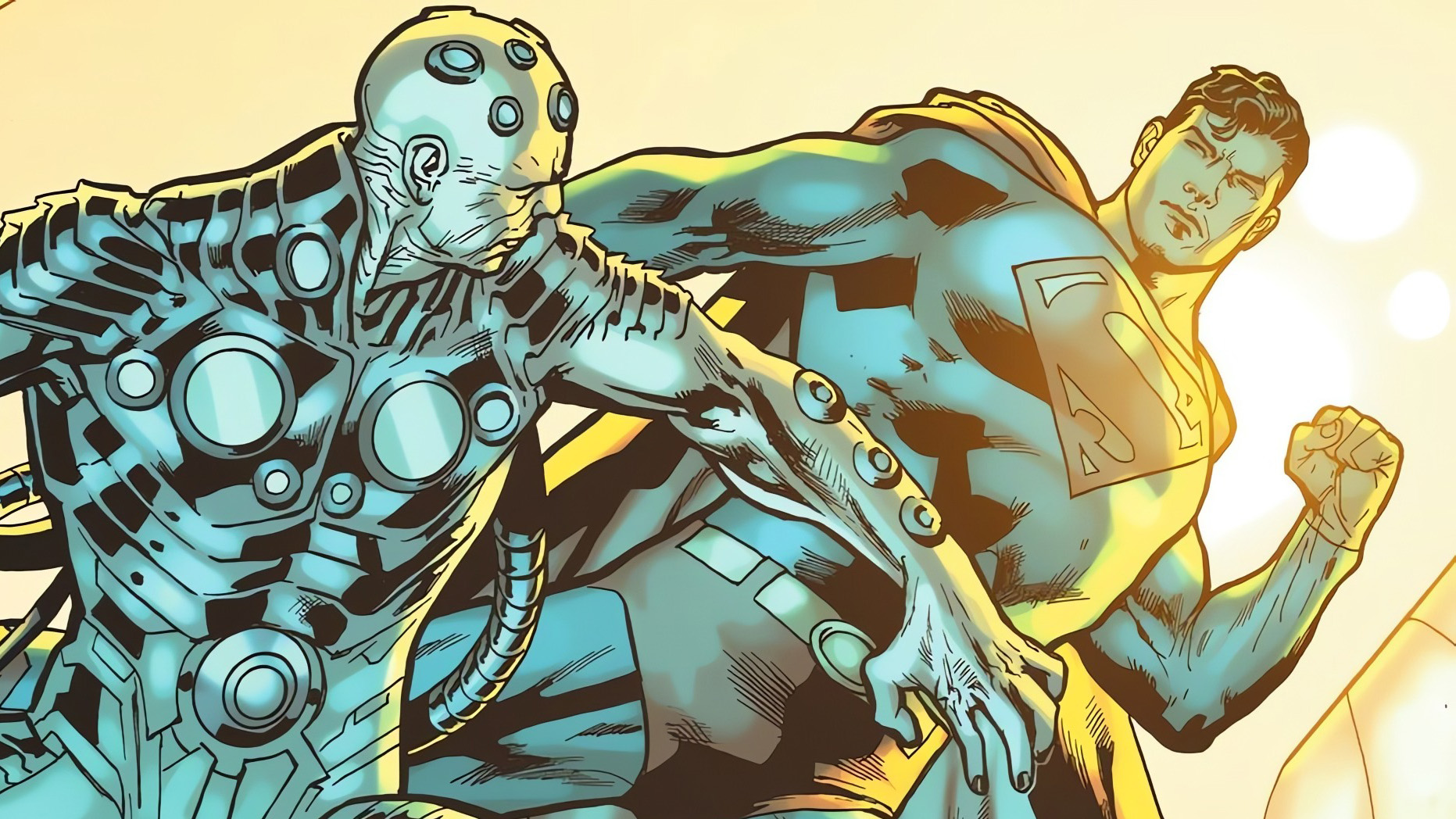
There have been many fine tales told about the Man of Steel, but few would deny that All-Star Superman by Grant Morrison and Frank Quitely is up there with the very best of them. Published across 12 issues, the out-of-continuity saga attempted to boil the character down to his essentials, giving us a deep and often moving insight into what makes Kal-El/Clark Kent tick. If, somehow, you've never read the book then, for the love of Zod, go and rectify that right now.
Superman: The Last Days of Lex Luthor is a very different sort of book - and we should offer a spoiler warning here for the full first issue.
The three-issue DC Black Label series, written by Mark Waid and drawn by Bryan Hitch, with inks by Kevin Nowlan and colors by David Baron, is less overtly comedic than All-Star. That's befitting a book so focused on Lex. And yet, on the basis of this first issue at least, it can't help but evoke the sci-fi Silver Age spirit of Morrison and Quitely's opus while also calling back to one of Waid's own works: Superman: Birthright.
Indeed, in an interview with Newsarama earlier this year, the writer said that the new book was a "spiritual sequel" to that series.
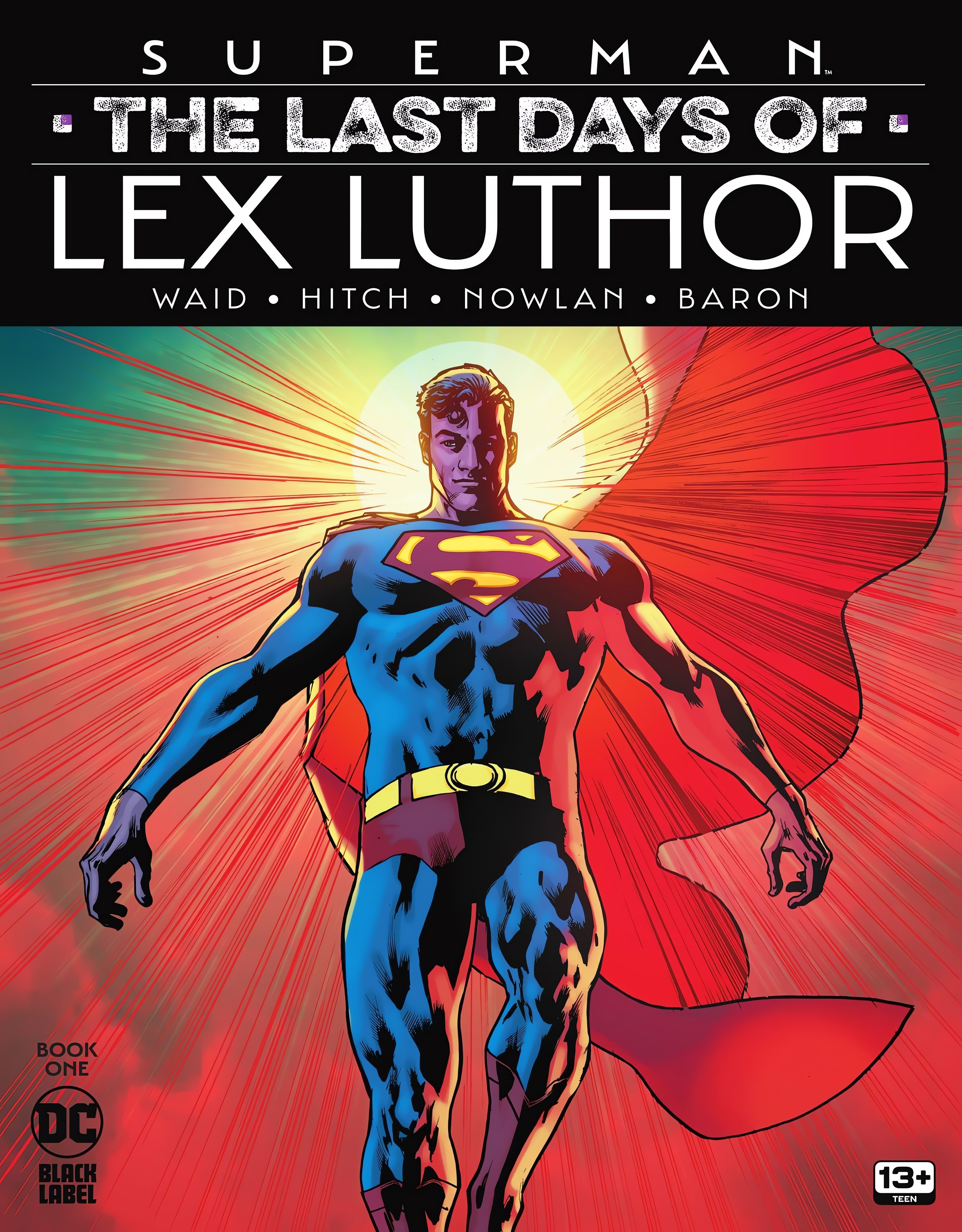
The story begins with a bang as the island of Meghwip is attacked by a giant robot. Superman does what Superman does, flying in to the rescue and using his smarts and speed to save everyone on the island. He defeats the robot and, tearing it open, finds a strangely frail Lex Luthor inside waiting for him. Supes suspects a trap, but when Lex tells Kal-El that he is dying, he realises that his oldest foe is telling the truth.
It turns out that this whole escapade has been an attempt to draw Superman's attention so that he can ask for his help. Lex doesn't have long to live, due an experiment gone wrong, but he knows that Kal-El will do his best to save him, even if it comes at the cost of the public's trust. In an amusingly spiteful moment Luthor reveals that he has murdered the technicians that built his stolen robot and broadcasts Superman's promise of aide to the whole world, disgracing him in the process.
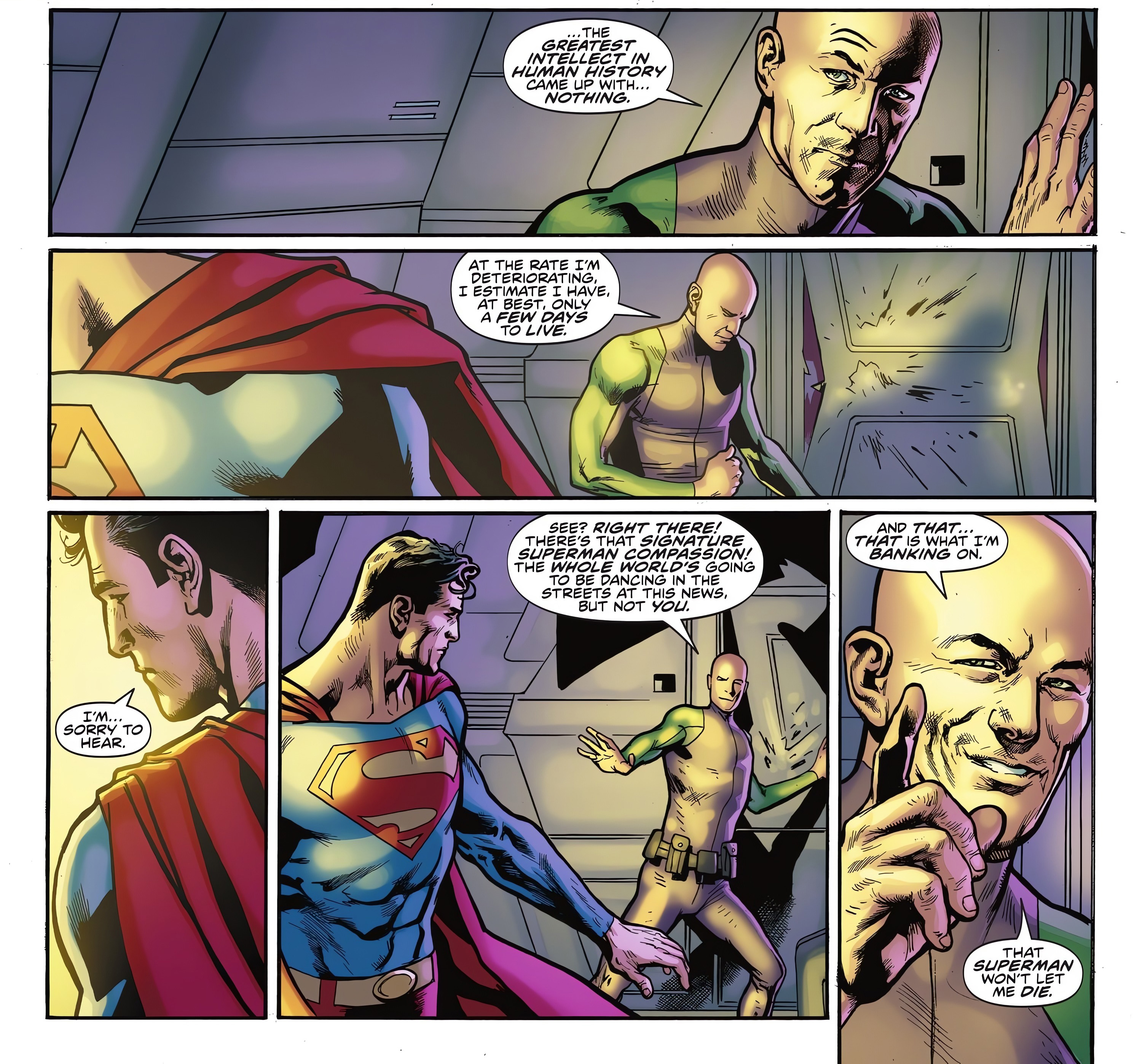
There's already an echo of All-Star Superman here, with both books using the final days of a key DC character to say something about how that person lived. All-Star was about the fundamental goodness of Superman and how his legacy will live on. In this case we see Lex's genius, but also his monumental ego ("I refuse to acknowledge a universe without me in it," he spits at one point) and capacity for sadism.
Get the best comic news, insights, opinions, analysis and more!
Having said that, while this is fundamentally Lex's story, there's still plenty of insight into Superman himself, with The Last Days probing at the arguably selfish lengths our hero will go to keep his moral code intact.
Clark feels guilty. He has come to believe that he's responsible for creating Lex in the first place. In an intriguing scene that bookends the issue, we witness the young Clark pounding on the doors of Lex's laboratory while it goes up in flames.
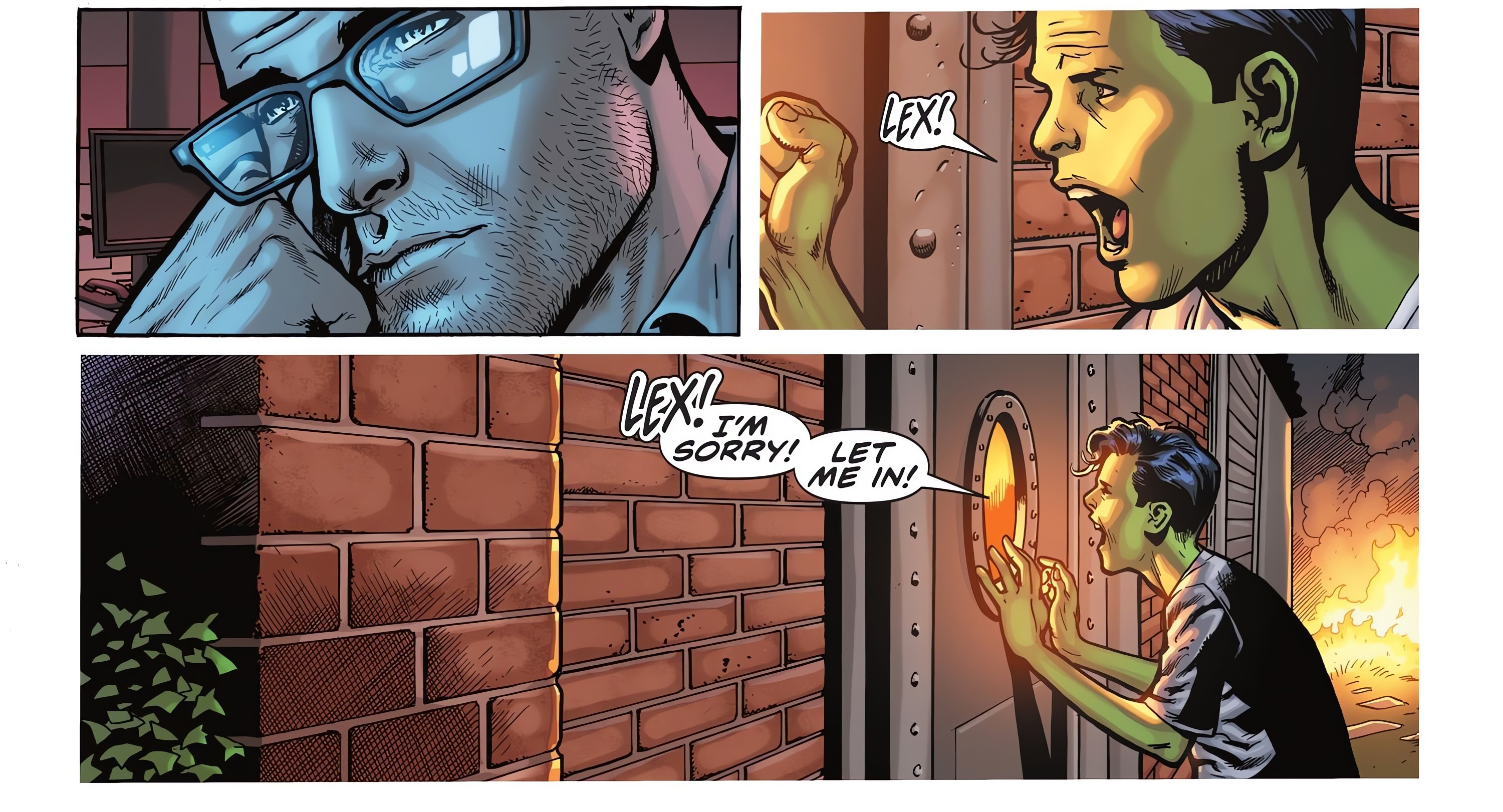
There's a mystery to be explored there in the remaining issues, but this certainly seems like a direct link to Birthright, the 12 issue Superman series that Waid wrote in 2003-2004 which, for a brief moment, was Supes' official origin story (it was later de-canonized by the Infinite Crisis storyline).
In Birthright #8 we learn that the young Lex and Clark are, if not exactly best buds, then at least on friendly terms. When Lex starts messing around with Kryptonite, however, Clark gets sick. Lex misunderstands the situation and, feeling betrayed, presses on with an experiment that leads to a lab fire. Luthor's hair is burned off, his father is killed, and Clark blames himself for Luthor's eventual turn to villainy.
That explains Superman's willingness to help his greatest for in the present. He couldn't help Lex then, but perhaps he can now. The question is, what will the cost of Lex's survival be to the rest of the world?
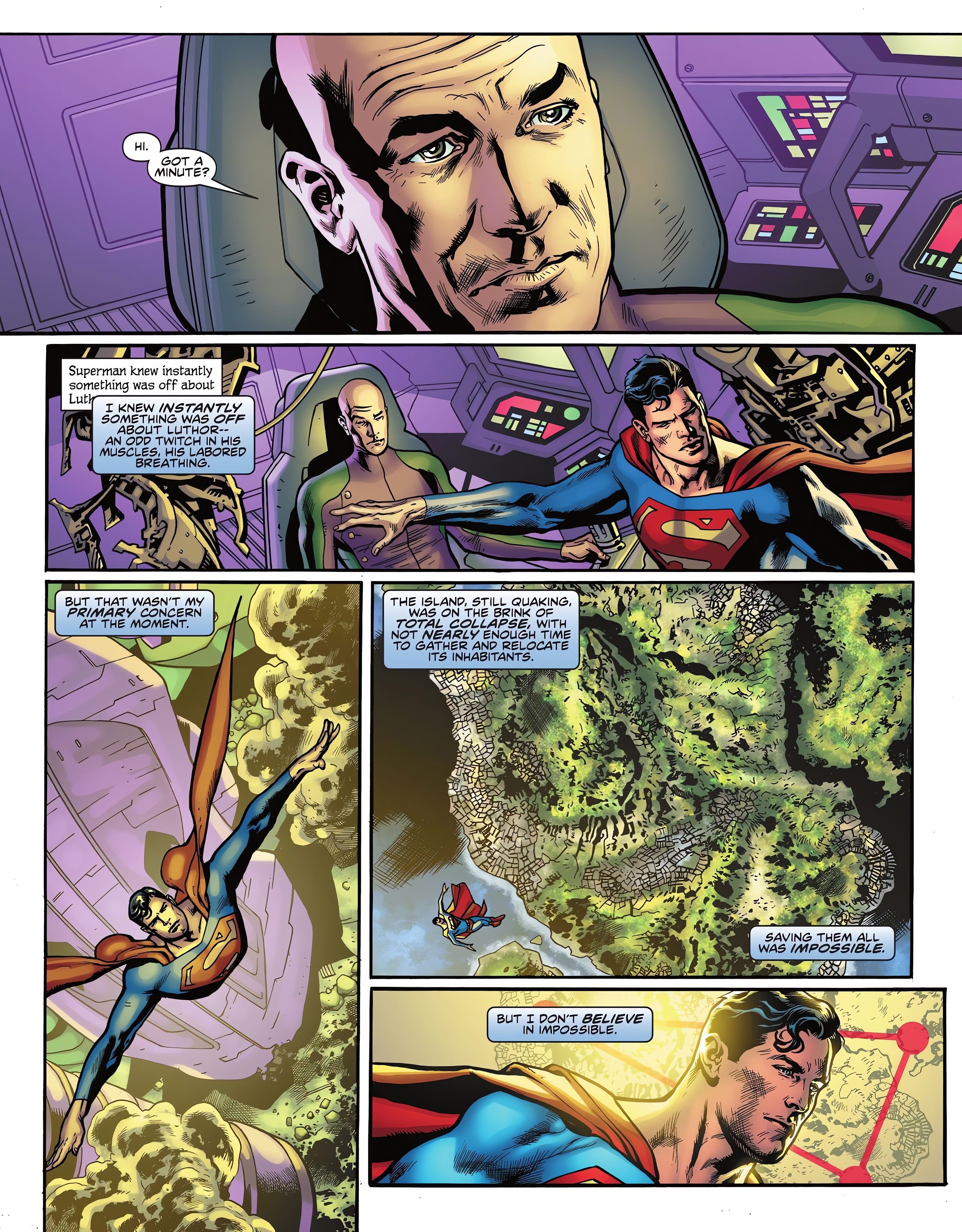
The rest of the book adopts a loose travelogue structure, with the two unwilling companions embarking on a quest across different parts of Superman's world, starting with the Fortress of Solitude. From there they pay a quick visit to the miniaturised city of Kandor. When Kryptonian scientists are unable to help Luthor, Superman suggests that he waits it out in the Phantom Zone. It's a terrible place, but at least it offers Lex a chance. Unfortunately a tussle with Zod makes it clear that that too is unviable. The issue ends with Clark back at square one, once more dwelling on his guilt.
This is a terrific first issue, beautifully presented by the art team of Hitch, Nowlan and Baron who do elegant, expansive work here. The Last Days is cinematic in its big moments, but doesn't feel like a comic that's pretending to be a movie.
Indeed, it's to the whole creative team's great credit that while The Last Days of Lex Luthor is partly standing on the shoulders of two of Superman's all-time great stories, it doesn't pale in comparison to them. Instead, it reaffirms Clark's nobility and Lex's cruel brilliance, while also hinting at the dangers of becoming trapped in guilt and memories of the past. One issue in and this has the hallmarks of a classic adventure for the Man of Steel and his best enemy.
Superman: The Last Days of Lex Luthor #1 is out now from DC.
Superman and Lex are enemies. One's a hero, the other a villain, it makes sense. But sometimes heroes turn on each other. Check out our list of the best superhero rivalries.

Will Salmon is the Streaming Editor for GamesRadar+. He has been writing about film, TV, comics, and music for more than 15 years, which is quite a long time if you stop and think about it. At Future he launched the scary movie magazine Horrorville, relaunched Comic Heroes, and has written for every issue of SFX magazine for well over a decade. His music writing has appeared in The Quietus, MOJO, Electronic Sound, Clash, and loads of other places too.


